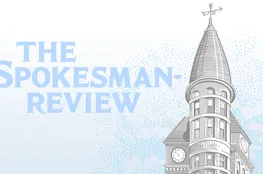Italy's new digital nomad visa represents a dream come true for remote workers wishing to embrace the dolce vita. Launched in April 2024, this visa allows eligible individuals to relocate to Italy while continuing their careers remotely. Although the rollout has been quiet, with only a few accounts of successful applications, one Bay Area woman, Chelsea Waite, navigated the complexities and emerged triumphant.
Chelsea's journey is nothing short of miraculous. Her love affair with Italy began during her 2017 trip to Florence and Tuscany, setting her heart on living amidst Italy's charms. However, the path wasn't straightforward. Attempting to transition from San Francisco to Italy presented hurdles, especially without an Italian employer. As a self-employed PR professional, Chelsea found herself in a unique position, unable to secure a traditional work permit.
The pandemic, however, became a turning point. Transitioning to remote work, Chelsea eventually launched her PR company, catering to tech startups. An inspiring visit to Milan ignited her desire to pursue her Italian dream further. Despite initial setbacks with immigration attorneys advising against her prospects, Chelsea's resolve was unwavering.
When Italy announced the digital nomad visa, Chelsea seized the opportunity. The application process was fraught with challenges due to scant information and the notorious difficulty of securing a consulate appointment. For six weeks, Chelsea persistently sought an appointment, finally landing a slot at the San Francisco consulate. Her strategy? Apply to learn firsthand the requirements, even if it risked rejection.
Preparation was key for Chelsea. Gathering over 120 pages of documentation, she left nothing to chance. From proof of income meeting Italy's unspoken financial expectations to securing a lease agreement in Milan, Chelsea meticulously compiled evidence to support her application. With her father's connections aiding her real estate needs, Chelsea paid a hefty deposit trusting she'd retrieve it upon visa refusal.
Against all odds, Chelsea's preparation paid off. Her application was processed within ten days, a testament to her thorough approach. Her bold decision to relocate within days of receiving her visa underscores her determination. Chelsea's move to Milan was swift; she packed her life, coordinated the logistics for her dogs, and jumped into her new adventure.
Transitioning wasn't without costs. Though Chelsea’s new Milanese lifestyle saves her $1,500 monthly compared to San Francisco, her overall visa pursuit ranges between $5,000 to $10,000. Even with these expenses, Chelsea remains positive, appreciating the vibrant, business-minded city and the expat community she's joining.
So why are digital nomad visas scarce? Chelsea suggests applicants may not fully grasp the exhaustive preparations required. Essential elements include binding accommodation contracts, a demonstrably higher income than the baseline requirement, and professional qualification validations. Chelsea's experience illustrates that success often stems from overpreparation and financial readiness.
For aspiring digital nomads, Chelsea is crafting an e-guide to demystify the process—attempting to streamline what many find convoluted. Despite the challenges, her success story encourages others to remain positive and well-prepared. Italy may eagerly welcome remote workers, but as Chelsea’s journey reveals, it's a path paved with dedication, resilience, and a touch of serendipitous timing.
























